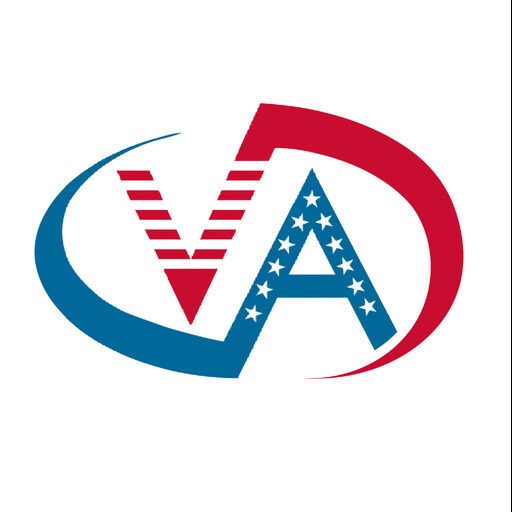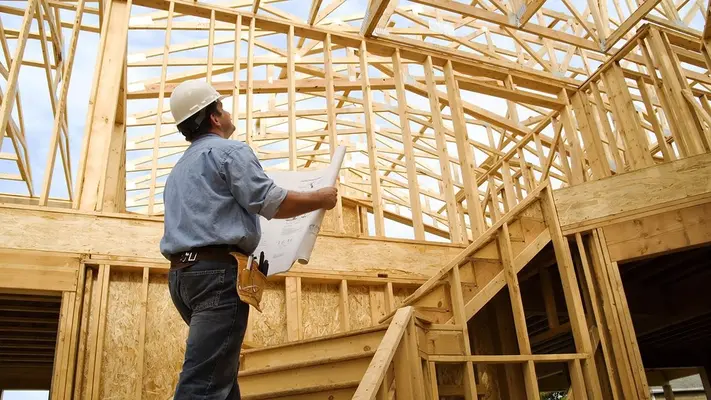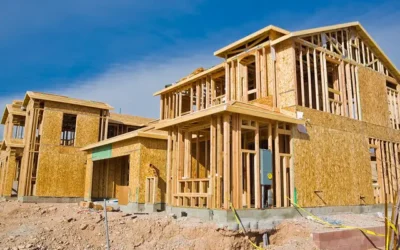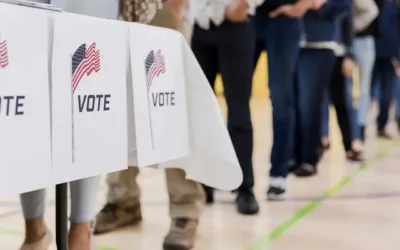The housing market has been facing several challenges recently, and one of the most pressing issues is the sharp decline in homebuilder confidence. A combination of rising interest rates and ongoing labor shortages has caused a slowdown in new housing starts, which has serious implications for prospective homebuyers, particularly Veterans using VA loans.
In this article, we’ll explore what’s causing this decline in builder confidence, how it affects Veterans and military families, and what potential solutions are on the horizon.
What’s Driving the Decline in Homebuilder Confidence?
Homebuilder confidence has seen a notable drop in the past few months, and this decline can be traced to several key factors:
- Rising Interest Rates: One of the most significant factors affecting builder sentiment is the rapid rise in mortgage interest rates. With the Federal Reserve raising rates to combat inflation, the cost of borrowing has surged, making homes less affordable for buyers and dampening demand for new homes.
- Labor Shortages: The construction industry has been grappling with a shortage of skilled labor for years, but the problem has been exacerbated by the pandemic. This shortage means that builders are struggling to complete projects on time, leading to delays and increased costs.
- Material Costs and Supply Chain Issues: On top of labor shortages, builders are also dealing with rising material costs and persistent supply chain disruptions. Prices for lumber, steel, and other essential materials have spiked, making it more expensive to build homes.
These challenges are making it harder for builders to deliver new homes at a time when demand remains high, particularly among Veterans looking to take advantage of the benefits offered by VA loans.
"The combination of rising interest rates and labor shortages is creating a perfect storm for homebuilders. Veterans looking to use their VA benefits to purchase a home in competitive markets may find that housing options are becoming more limited. It’s more important than ever for VA borrowers to be prepared with pre-approvals and flexible buying strategies."
— Jake Thompson, Senior Mortgage Advisor, Patriot Home Loans
Latest Stats from the NAHB Housing Market Index Report
- Builder Confidence Index has dropped to 40, marking the third consecutive month of decline.
- Rising Interest Rates have increased nearly 40 basis points, reaching 7.57% by late September.
- 32% of Builders are reducing home prices to attract buyers in a difficult market.
- 62% of Builders are offering additional sales incentives to boost sales.
- Housing Starts are slowing down due to ongoing labor shortages and rising material costs.
- Sales Expectations for the next six months dropped by 5 points, showing continued pessimism in the industry.
- Veterans and Military Families using VA loans may face tighter housing inventory due to reduced construction starts.
How Is This Affecting Veterans and Military Families?
For Veterans and military families, the slowdown in home construction is making it increasingly difficult to find affordable homes in competitive markets. VA loans offer several advantages, including no down payment and lower interest rates, but these benefits are only useful if there are homes available to purchase.
Here’s how the decline in builder confidence is impacting military families:
- Limited Inventory: With fewer new homes being built, the inventory of available homes is shrinking. This is particularly problematic in areas near military bases, where demand is often high due to frequent relocations.
- Rising Home Prices: The combination of limited inventory and high demand is pushing home prices up, making it harder for Veterans to find homes within their price range. While VA loans offer favorable terms, higher home prices may still stretch budgets.
- Longer Wait Times for New Homes: Veterans looking to purchase newly built homes are facing longer wait times due to construction delays. Builders are struggling to keep up with demand, and labor shortages mean that projects are taking longer to complete.
- Increased Competition: With fewer homes available, Veterans are finding themselves in bidding wars with other buyers, which can drive up prices even further. In some cases, buyers may need to offer more than the asking price to secure a home.
Regional Variations in Housing Availability
While the national trends are concerning, it’s important to note that the impact of declining builder confidence varies by region. Areas with particularly high demand, such as those near major military bases, are feeling the effects more acutely. Below is a table outlining some of the most competitive regions for Veterans seeking housing.
| Region | Military Base | Challenges |
|---|---|---|
| San Antonio, Texas | Joint Base San Antonio | High demand, rising prices, limited inventory |
| Fayetteville, North Carolina | Fort Bragg | Growing population, fewer new homes |
| San Diego, California | Naval Base San Diego | Expensive housing market, limited new builds |
| Washington, D.C. Area | Joint Base Andrews | High competition, longer wait times |
These regions are seeing higher-than-average price increases and longer wait times for new homes, making it difficult for Veterans to secure affordable housing.
Potential Solutions for Veterans
Despite these challenges, there are steps Veterans can take to improve their chances of finding a home in today’s market. Here are some strategies to consider:
- Work with a VA-Savvy Real Estate Agent: A real estate agent who is experienced with VA loans can help Veterans navigate the competitive market and identify homes that are eligible for VA financing.
- Explore Different Types of Homes: Veterans may need to expand their search to include different types of properties, such as multi-unit homes or manufactured homes, which may be more readily available in certain markets.
- Consider Refinancing: Veterans who already own a home and are struggling with rising mortgage rates may want to consider refinancing through a VA Interest Rate Reduction Refinance Loan (IRRRL), which allows Veterans to refinance at a lower interest rate.
How VA Loans Offer Relief
VA loans provide Veterans with several unique benefits that can help them overcome the challenges posed by the current housing market. Here are some of the key advantages:
- No Down Payment: Veterans can purchase a home with no down payment, which can be a significant advantage in a market where home prices are rising.
- Lower Interest Rates: VA loans typically offer lower interest rates compared to conventional loans, which can save Veterans thousands of dollars over the life of the loan.
- No Private Mortgage Insurance (PMI): Unlike other loans that require PMI if the borrower puts down less than 20%, VA loans do not require PMI, even with no down payment.
- Flexible Credit Requirements: VA loans have more lenient credit requirements, making it easier for Veterans with less-than-perfect credit to qualify.
Below is a table comparing VA loans to other types of mortgage options.
| Loan Type | Down Payment | Interest Rates | PMI Required |
|---|---|---|---|
| VA Loan | 0% | Lower than conventional | No |
| Conventional Loan | 3-20% | Depends on credit score | Yes, if < 20% |
| FHA Loan | 3.5% | Higher than VA | Yes |
The Outlook for 2026: Will Builder Confidence Improve?
Looking ahead, it’s unclear when homebuilder confidence will rebound. The Federal Reserve has indicated that it may continue to raise interest rates to combat inflation, which could further dampen demand for new homes. However, there are signs that the labor shortage may begin to ease as more workers return to the construction industry.
In the meantime, Veterans and military families will need to be strategic in their homebuying efforts. VA loans offer significant benefits, but the challenges in today’s housing market mean that buyers may need to be more flexible and patient as they search for a home.
"While current conditions are challenging due to high interest rates and labor shortages, builder confidence could start to improve if we see stabilization in mortgage rates and easing supply chain constraints. As inflation cools, and if the Federal Reserve begins to ease rate hikes, we might start to see a rebound in builder optimism within the next year."
— Mark Sullivan, Chief Economist, National Homebuilders Association
The Bottom Line
The decline in homebuilder confidence, driven by rising interest rates and labor shortages, is creating challenges for Veterans and military families looking to purchase homes.
With limited inventory, rising prices, and longer wait times for new construction, Veterans may need to rely on the unique benefits of VA loans to navigate the market.
By working with knowledgeable real estate agents, exploring different types of properties, and leveraging the advantages of VA loans, Veterans can still find success in today’s competitive housing market.
Frequently Asked Questions (FAQs)
Why is homebuilder confidence declining?
Homebuilder confidence is declining due to rising interest rates, material costs, and ongoing labor shortages. These factors are making it more expensive to build homes and harder for builders to predict future demand.
How do rising interest rates impact homebuilders?
Rising interest rates increase the cost of financing for both builders and buyers, leading to slower home sales and a reduction in the construction of new homes. Builders may face fewer qualified buyers as mortgage costs rise.
How does this affect Veterans using VA loans?
Veterans using VA loans may find it more difficult to purchase homes due to declining inventory caused by lower construction activity. Fewer new homes are being built, making the housing market more competitive.
What are builders doing to attract buyers in a difficult market?
To attract buyers, 32% of builders are reducing home prices, and 62% are offering sales incentives such as upgrades or reduced closing costs. These strategies aim to make homes more affordable despite rising mortgage rates.
Are housing starts declining?
Yes, housing starts are slowing due to high costs and limited labor availability, further contributing to the declining inventory in the market. This trend could persist if conditions don't improve.
What are the expectations for builder confidence in the near future?
Builder confidence is expected to remain low unless mortgage rates stabilize and the labor market improves. Builders are cautious about the future and are scaling back on new projects.
Can Veterans still find homes in a slowing market?
While inventory may be tighter, Veterans using VA loans can still find homes, particularly by exploring both new and existing housing options and working with real estate professionals who understand the VA loan process.

The VA Loan Network Editorial Team is comprised of dedicated mortgage specialists and financial writers committed to providing veterans and service members with accurate, up-to-date information on VA loan benefits, eligibility, and the home-buying process.








